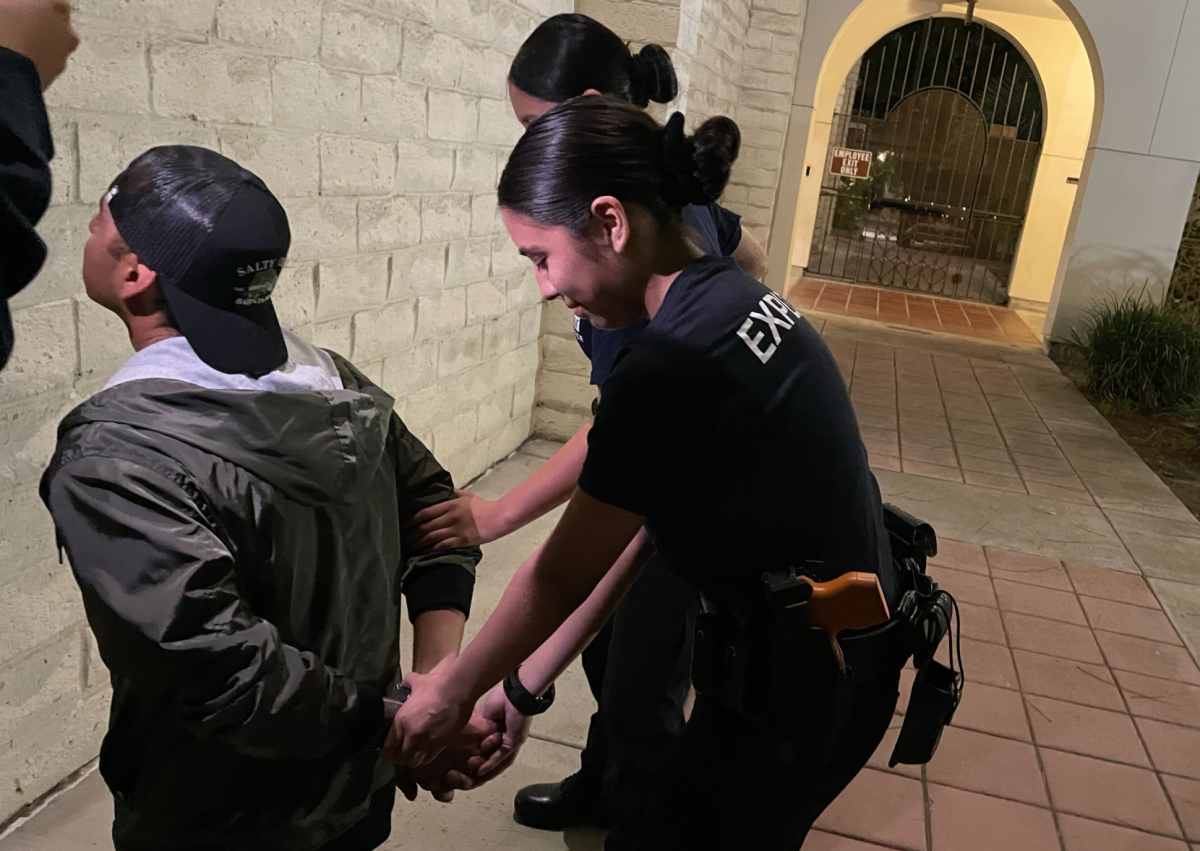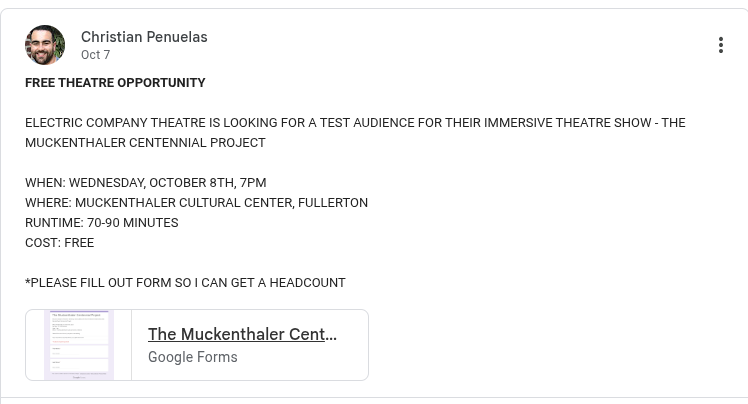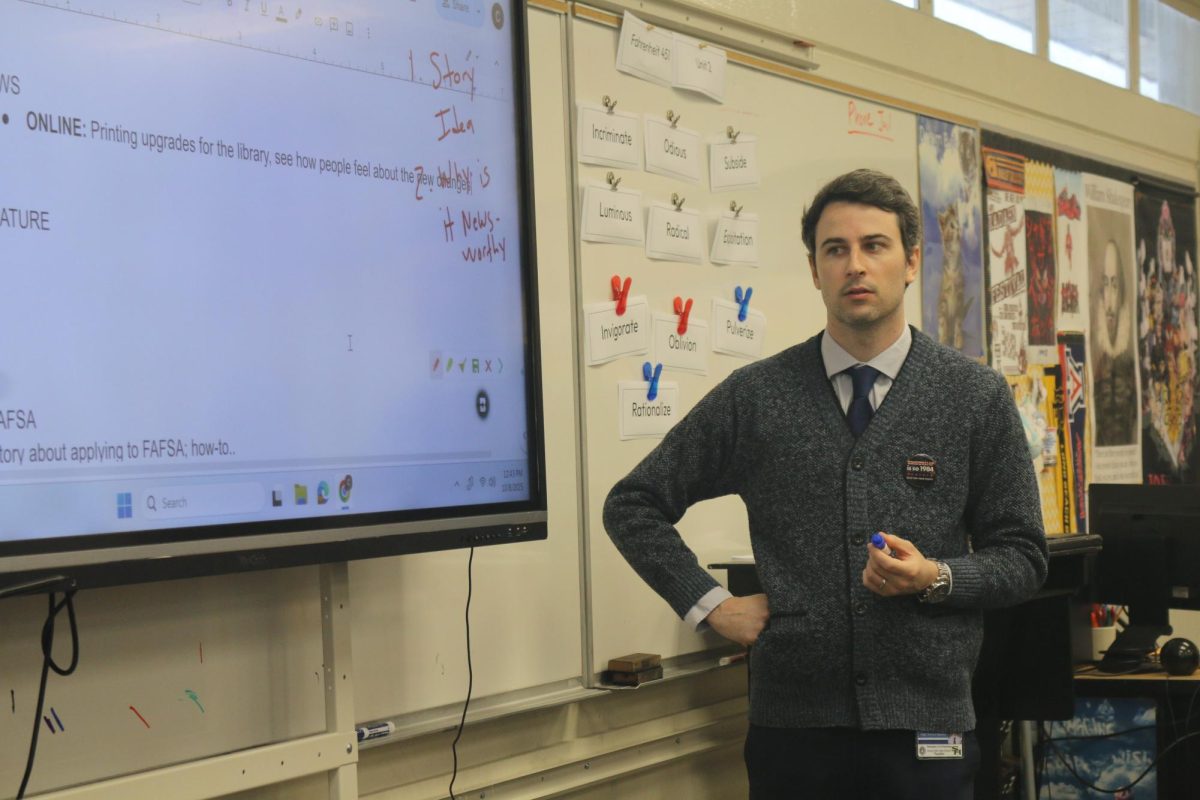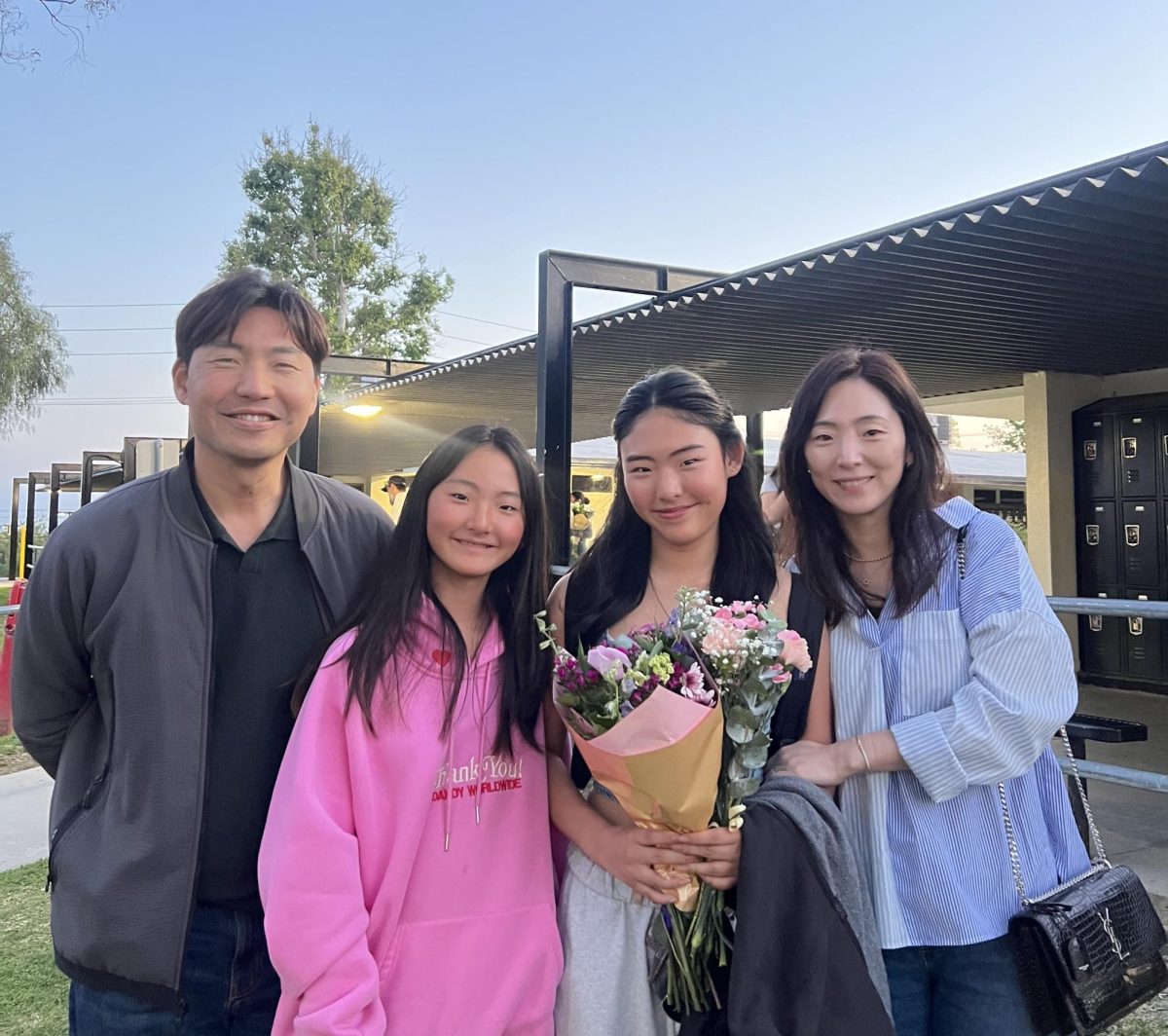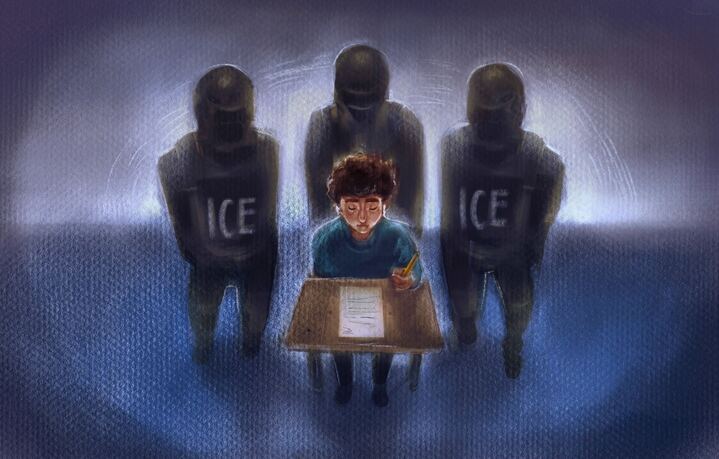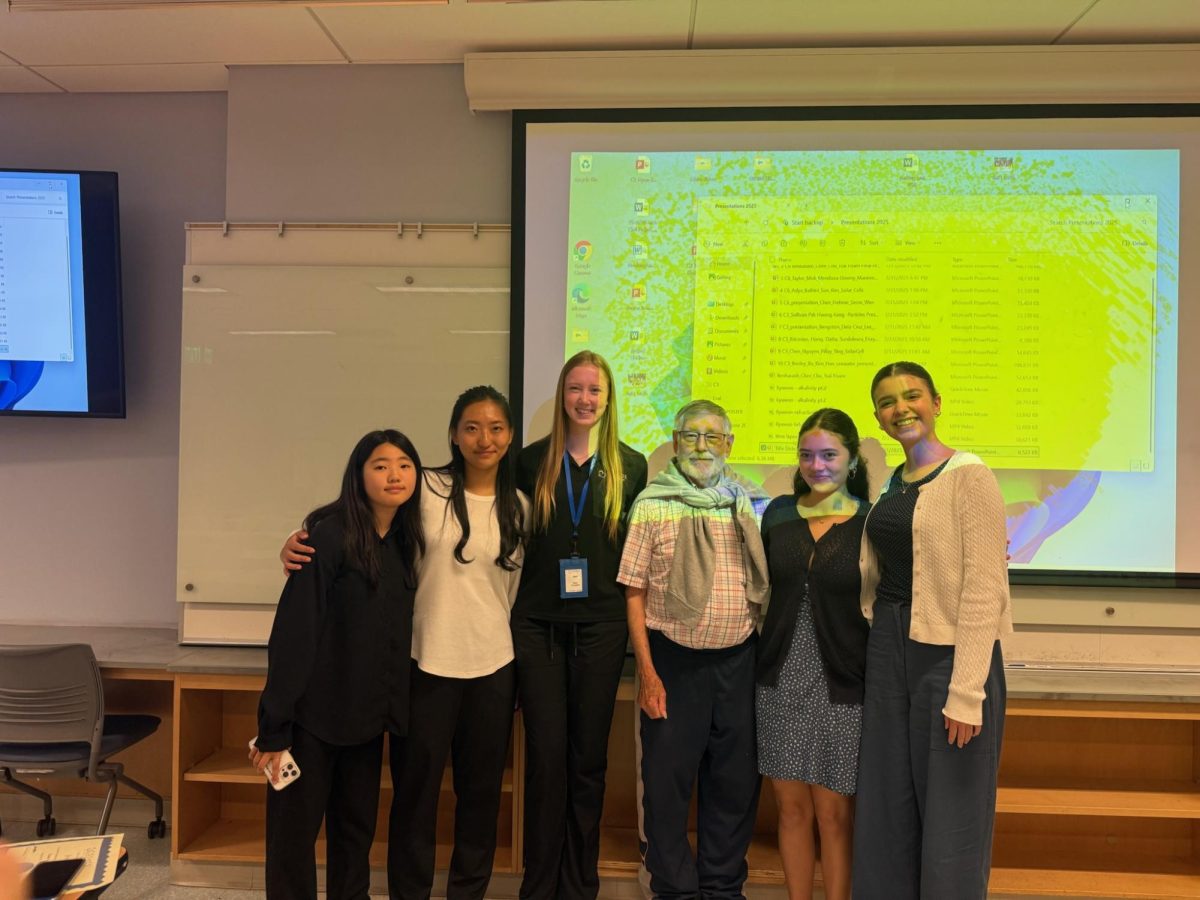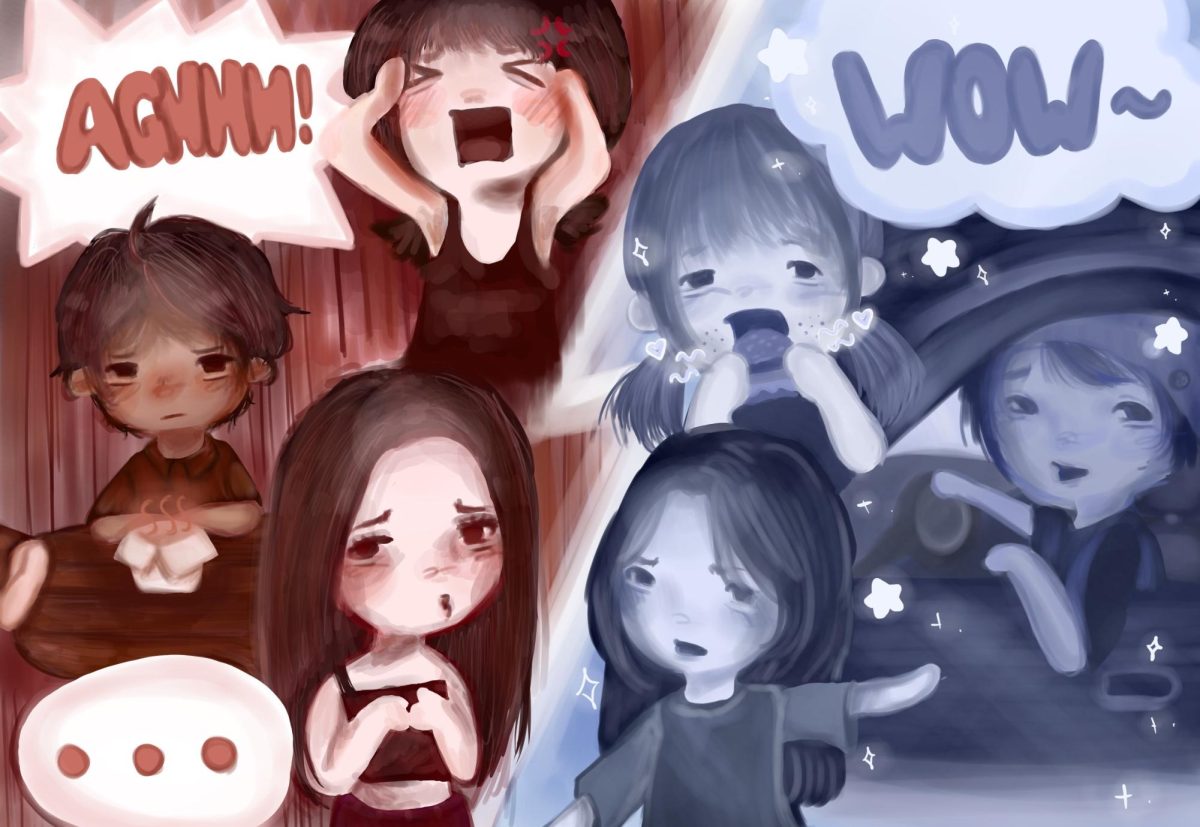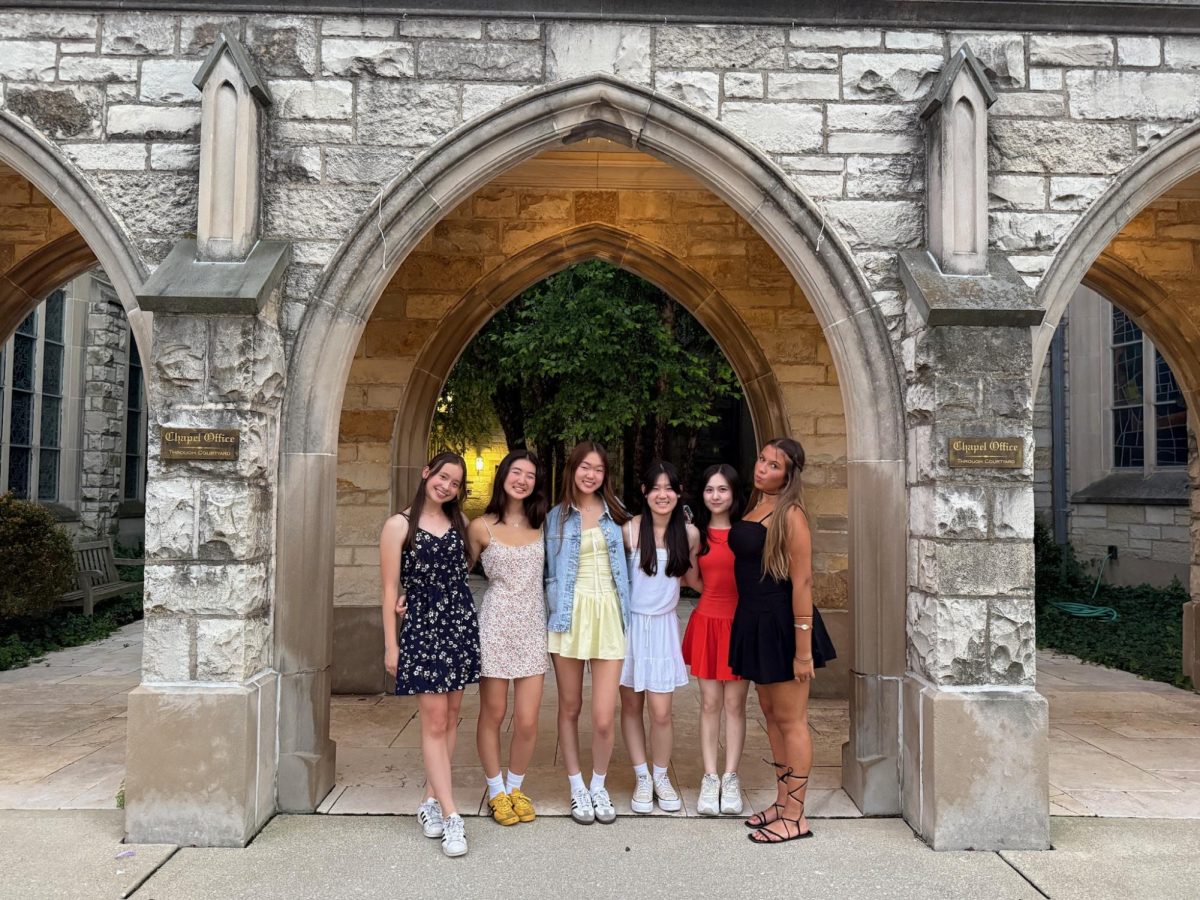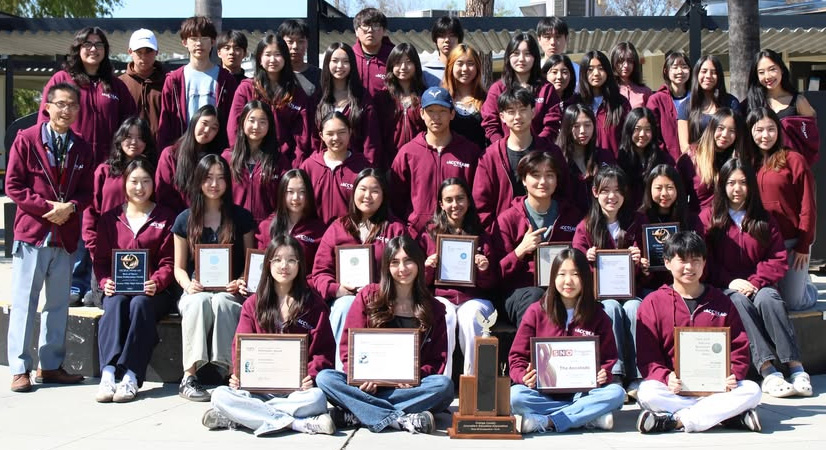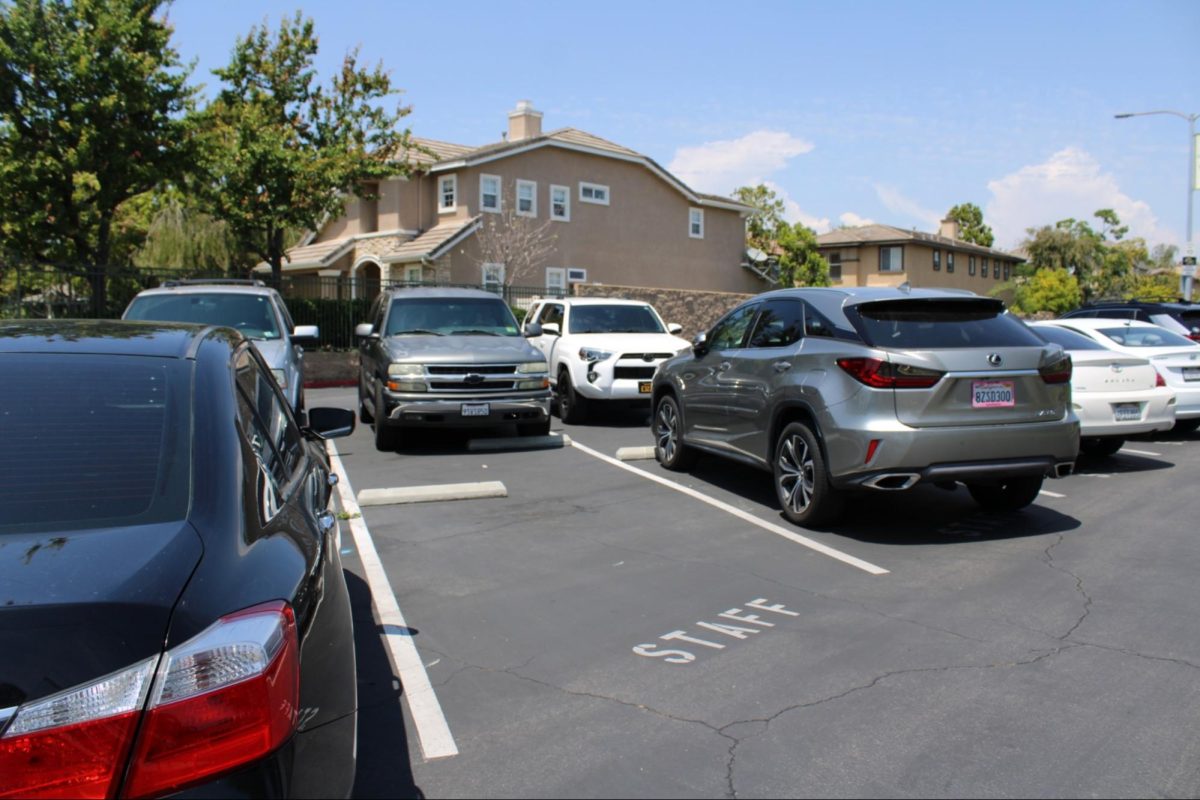“Get down to your knees with your hands locked together on your head!” I yell, detaining the suspect and firmly grabbing his hands behind his back while awaiting backup.
But the person I’m arresting isn’t an actual criminal — he’s a peer in the Fullerton Police Explorers program, and we’re practicing how to properly conduct a felony traffic stop.
Since my involvement from the start of the school year, it has been a great experience as I am learning more about a career in law enforcement, something that piqued my interest as I started my senior year back in August.
The way the program works is every member attends a five-day explorer academy modeled after one for police cadets.
The academy is highly academic, coupled with intense physical activity intended to promote confidence in working under pressure and perseverance in completing tasks within a team environment. Upon completion, explorers receive a certificate.
As an additional benefit, students receive the opportunity to participate in ride-alongs with a Fullerton Police officer and shadow such a first-responder on the job. Other events include competitions against other explorer programs in Orange County.
Fullerton Explorers is also dedicated to preparing students for real-life scenarios that law enforcement faces on a daily basis and equipping them with the appropriate knowledge and skills to successfully investigate any suspicious incidents.
My decision to join also stemmed from an interest in learning more about the criminal justice system, which I plan to learn more about as a major in college at Chapman University in Orange.
Thinking back, it’s a bit ironic how I even learned about the program.
Pushed between crowds in last semester’s Club Rush during lunch, I looked around — and for a moment, between students, I saw school resource officer [SRO] Gene Valencia at a table with weapons displayed in front of him and talking to my peers about the Explorers.
I pushed my way to the table through the crowd in the quad and soon learned more about it, picturing myself some day as having this career for me.
I reached out to the SRO shortly after that through an email and was given the physical application packet after attending the three required meetings, receiving the form at the last one. Since then, I have participated in such practice scenarios as building searches, felony car stops and arrests and volunteer events like Love Fullerton’s community cleanup.
Besides submitting an application, students need to fulfull the following requirements:
- maintaining a 2.3 GPA or higher
- being between the ages of 14 and 20
- a clean record free of any criminal offenses
Officers question students on various radio codes and police policy and procedures during an inspection in which explorers are expected to recite and explain themselves under pressure. Then, we go inside a conference room for lectures, lessons, physical exercise or mock scenarios for the duration of the meeting.
That’s what it looks like every Wednesday from 5-8 p.m. — we head over to the Fullerton Police Department at 237 W Commonwealth Ave., where we meet up in the downstairs area outside in our formation.
At the beginning of every meeting, the class sergeant leads the platoon through a series of drills with some simple jargon:
- “Fall in”: Move into formation!
- “Dress right, dress”: Align yourselves in respect to other explorers.
- “Ready, front”: People stretch out their left hand and touch the shoulder badge of the explorer next to them as their head turns to the right.
- “Cover, recover”: Extend your left arm horizontally and touch the explorer with your fingertips, then recover to return to the position of attention.
- “Half right, face”: Slightly raise the right toe and left heel and turn 45 degrees on the right heel.
- “About face”: Move your right foot behind the other, rotate to the right 180 degrees by pivoting on the left heel.
The advisers, Valencia, Raj, Soto and Munoz (for confidentiality, Valencia did not want me to include their first names), are present at almost every meeting to help us work under pressure by yelling probing inquiries at explorers and gaining strength through physical training.
Unless an explorer makes multiple mistakes or the group is commanded to exercise, the squad of 16 heads into the break room to debrief and discuss plans for the evening. Then, we head into the conference room where the police officers teach lessons and lead demonstrations.
One evening, while the March 12 meeting was under way, as usual, we were prompted to a room with a gym mat and other protective gear. The officers then revealed we would be prompted with a high-stress mock scenario with a combative subject.
They expected us to de-escalate the situation and use the appropriate force, which could have been less lethal options, including going hands-on, deploying pepper spray, deploying a taser or utilizing a baton.
We were instructed how to properly use a baton, and then officer Munoz came out in red protective gear from head to toe. He played the role of a fleeing subject that became physically uncooperative; each explorer had an opportunity to respond, handling the situation with their batons to de-escalate the pretend scenario. It was a hilarious turn of events that everyone enjoyed and learned from.
Being a senior this year, I regret not finding out about this program sooner so that I may have gained more experience and knowledge on the interesting details of investigations, police work, court proceedings and government rules. The Police Explorers program has enlightened me to the insights of what police officers face on a daily basis, how our society is governed and why.
If someone is interested in joining the Police Explorers program, feel free to contact Valencia via email at [email protected] or attend a meeting at the Fullerton Police Department on Wednesdays from 5-8 p.m.



